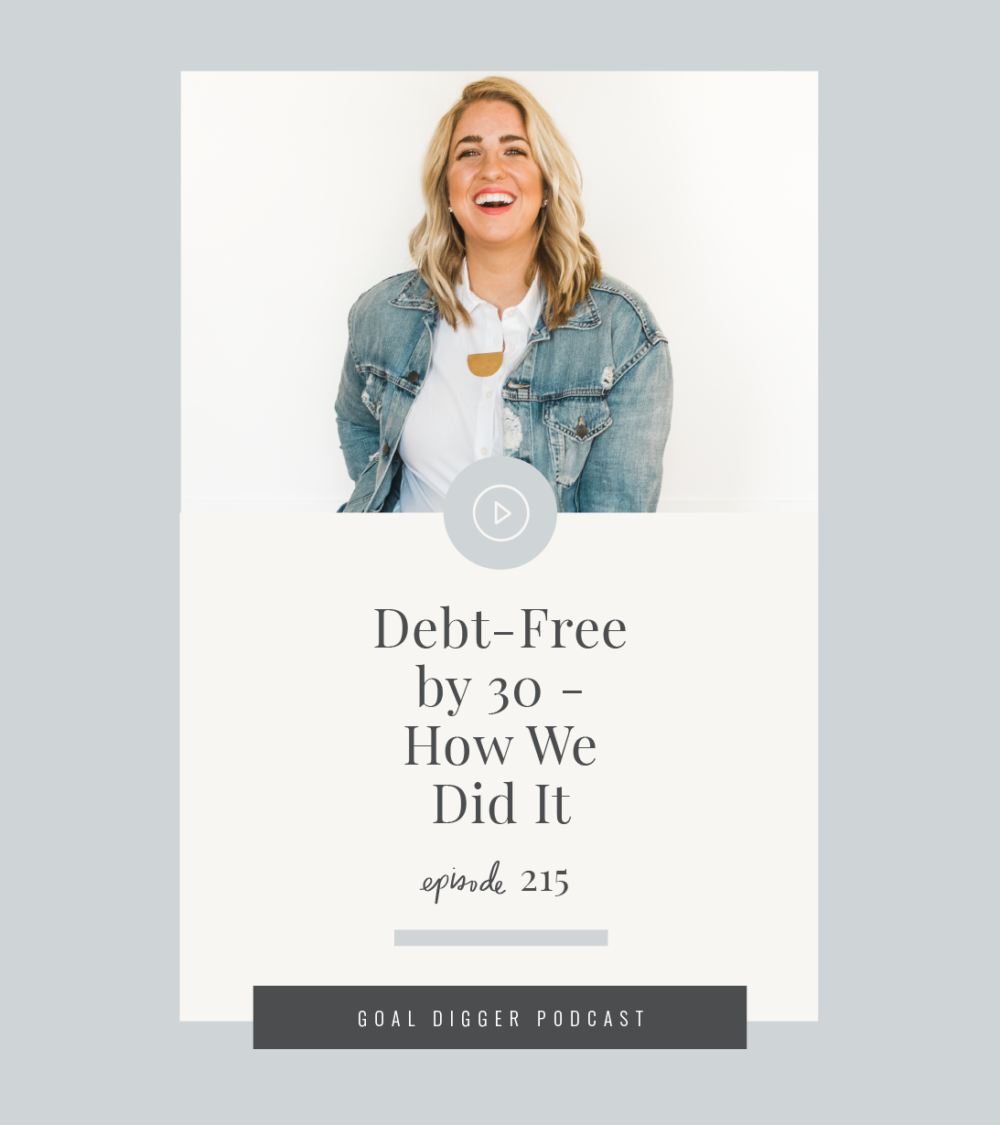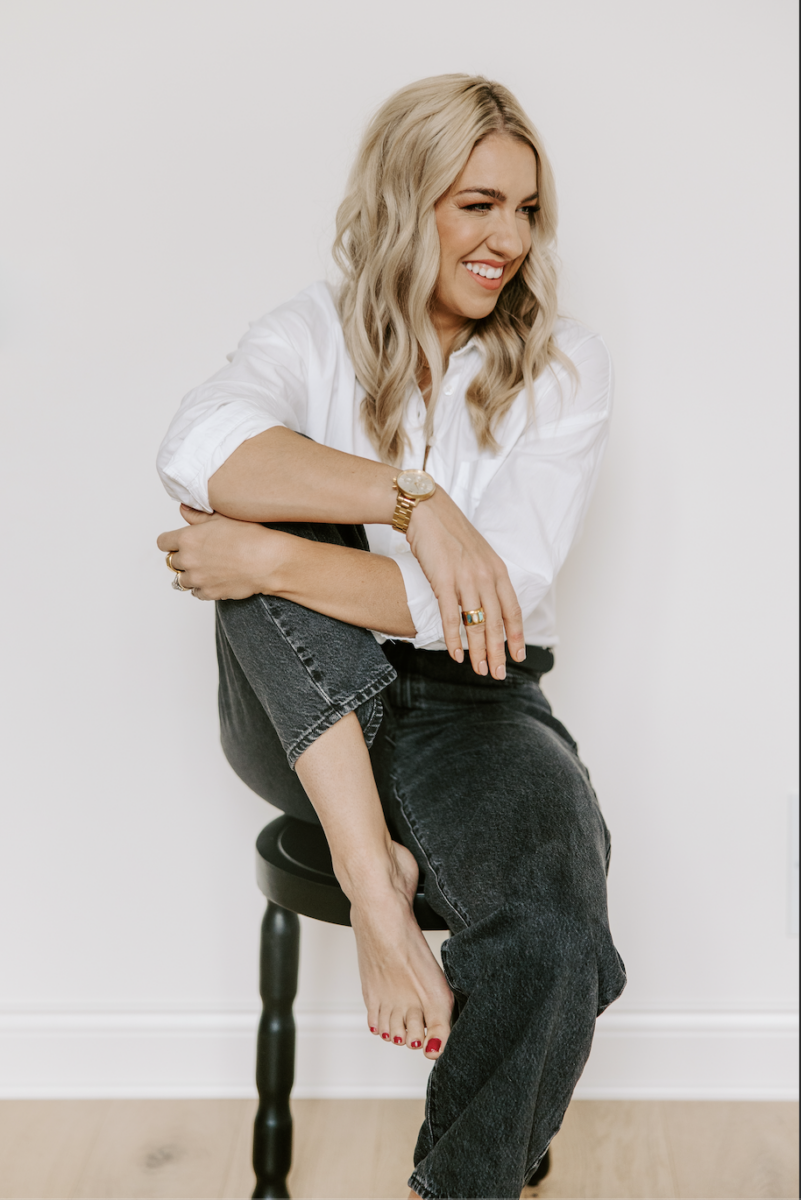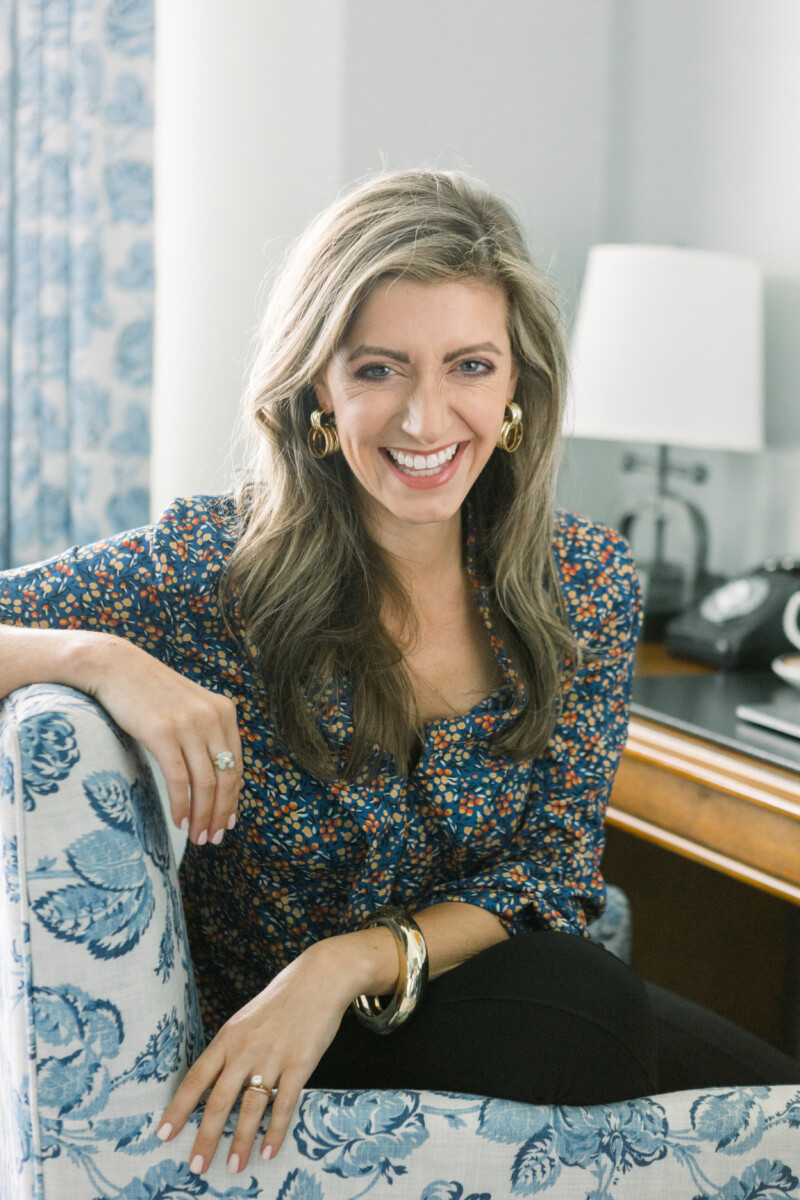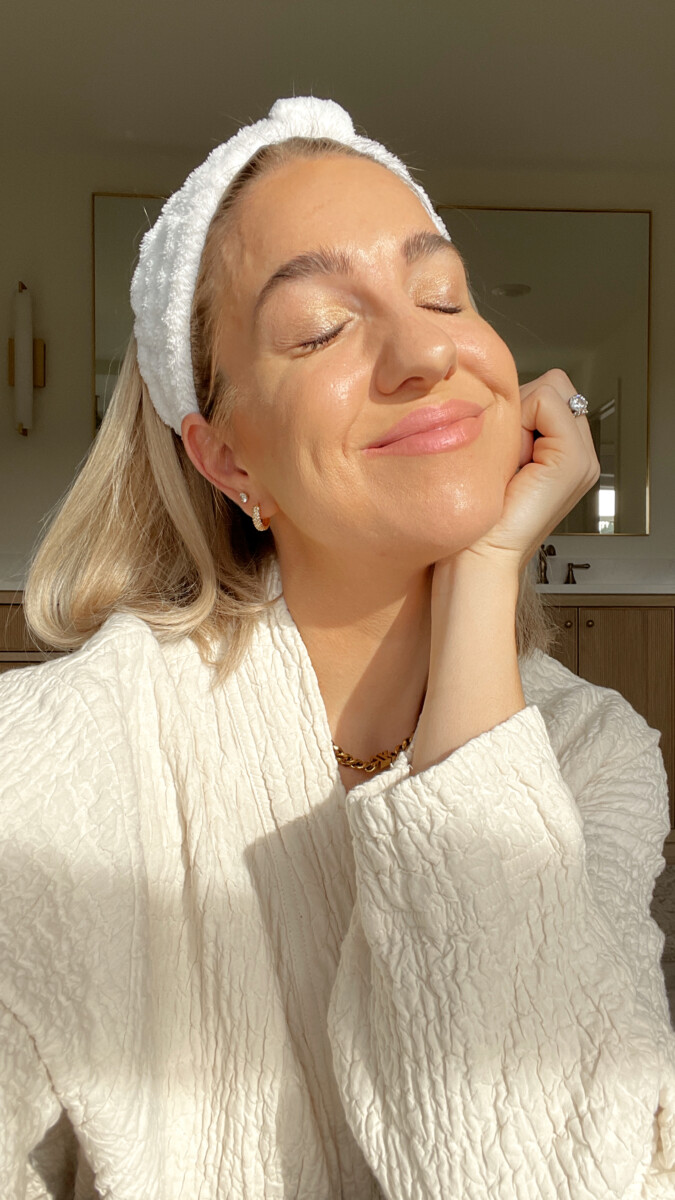
Debt free by 30. We did it… And I believe you can do it, too.
I was hesitant to record this show because our own financial situation looks a lot different than others… But when I shared the fact that we are entirely debt free — we’re talking no student loans, no mortgage, no car payments, plus we bought two Hawaiian condos — I got a ton of requests and questions about how we did it, how we planned for it, and my tips to reduce the debt you have!
It didn’t happen by chance. We worked hard to reach our debt-free goal, and I learned so much in the process that I want to share with you. Today’s episode is going to dive into how we achieved being entirely debt free before my 30th birthday.
…And for the record, we pulled off this feat when I was 29.5.
My story
The way that we look at money is shaped by so many factors: how we were raised, how we learned to earn money, if we carry limiting beliefs around what’s possible for us, and the control we let money have in our lives. I often remember being a little girl and my mom had me set three different mason jars up on my shelf and each one was labeled. The first: saving, the second was for spending, and the third was for giving. We did different things as a kid to learn the importance of money in our lives as a mere means of exchange. A few things that I really appreciate now that I am older are:
My grandparents set up a college fund for us. They would match whatever we gave them so whenever we had a birthday or a milestone that would result in monetary gifts, we were challenged to give them some of the money, trusting that someday we could cash it in when we needed it more. My parents seldom handed out money. We always knew we had to work for what we got. They never laughed when we wanted to have a lemonade stand on our dirt road that literally had no traffic. I got my first job when I was 14. I worked full 8 hour days and nannied for two children. I made $20/day and was stuck at the house with the two kiddos because I couldn’t yet drive.
One of the first times I was SUPER aware of money and work and to never take it for granted was when my dad went on an unfair labor strike. The year was 2000 and I was 12 years old. The strike lasted for almost an entire year which meant we were living off of one income. I’ll never forget that my gymnastics gym had a box out to collect food and I scoured our cabinets to find something to bring to donate. I threw in a canned item, a specific kind of tuna that had been sitting in our cabinet for awhile… then a month later, that box was anonymously left on our front porch in time for the holidays. I picked up that tuna and didn’t know if I should be embarrassed or grateful. The gym had been collecting food for US. It was a really hard year.
My parents didn’t give us any money for college. The strike had drained any savings and so we were encouraged to work really hard, apply for any and all scholarships, and know going in that we were responsible for our education. I remember filling out countless scholarship applications and my mom telling me, “If you get these, this will be the easiest money you will ever earn!” She was right. In the summer, I would come home to work. The first year, I juggled 3 jobs and put in 50+ hours a week.
Lastly, I’ve never had any sort of hand out; I’ve worked for every penny. So as we dive into this episode I want for you to remember that while I AM a self made millionaire, I had no hand outs, no trust fund, I didn’t have celebrity connections or the top business coach on planet earth. I’ve worked for every single penny and broken every barrier to get to where I am today and now I’m about to share how exactly we did it… Because I wasn’t always a millionaire — far, far from it!
Tip #1: Learn how to budget
I was recently talking to my sister and she was telling me that 90% of her friends don’t even contribute to their employer match 401k or IRA. I was shocked, like that’s basically free money and you were just a poor college student so how could you not take advantage of something that so many of us WISH we had? I told her that I think it should be a requirement that before every kid graduates, that they HAVE to take a personal finance class where they learn the value of money and saving and understand how to create a true budget. I was lucky enough (within my economics minor) that it was required to take a personal finance class and boy, did I learn a ton. We had to sit down and calculate every expense we would incur monthly from cable to gas in our car, student loan payments to dining out expenses, and really look at each month as a whole.
At the time, I had a job offer for $50,000 a year. It was during my 2nd semester of my senior year so I was able to actually look at what I would be bringing in and then what would be going out. It helped me to understand how to save and helped me acknowledge expenses like car insurance that are easy to forget about.
It was also soon after graduating that I started planning our wedding. We threw a party for 200 people for under $12,000 and served pizza because I understood how to budget and knew that we were responsible for funding the majority of our wedding day. I use budgets often to this day. Whether it’s for our condo expenses, or how much to invest in my business, and I am constantly looking at money coming in and money going out and how we can minimize our overhead and maximize our profits.
Too often people don’t actually sit down and look at their bank statements or calculate their true expenses. To start budgeting (for people who suck at budgets) first start with what you know will be coming in. This is super easy if you have consistent paychecks, but if you are an entrepreneur, you want to start with what you know is guaranteed to come in for the month. Then write down ALL of your expenses. If you aren’t sure if you’ve got everything look at your credit card or checking account statement for the last 3 months. Then you can create separate funds for things if you’re worried about sticking to it — whether you do it in your bank account or create little envelopes with cash (a strategy from Dave Ramsey).
Tip #2: Understand living within your means
And then challenge yourself to live on less if possible. When I graduated college, I had about $12-15k in student loans, which considering I paid my way through all four years, wasn’t bad at all. Keep in mind, I was a scholarship seeker and worked hard all summer to help pay. We also were planning to pay for our wedding and were living separately before we got married so our accounts were separate at this time. Drew didn’t have any debt from college(thank you Kutchers!) and we were both saving for the wedding together. At the time, I was living off of $50k which was my salary at Target and when I think back to my take home, I believe I was making about $1,200 every two weeks. Want to know something crazy? Up until last year, six years later, I was STILL paying myself close to that amount, even though I was making significantly more. Even as my profits went up, I continued to pay myself minimally so as not to change our lifestyles too drastically.
You see, I’ve heard of hundreds of NFL players filing for bankruptcy or Hollywood celebrities who make millions and are now broke… And I’ve never taken earning a penny for granted. So while last year was my first million dollar year, I was only paying myself a small fraction of that. In fact, this year I was pouring over my profit and loss statements and realized that I was paying people on my team more than I was paying myself. The point of this is: our culture promotes purchasing and with things like Instagram fueling the “Keeping Up With The Jones’” mentality, it’s easy to fall prey and feel like you need to spend, spend, spend. I mean, how much fun is saving? But the truth was, we knew what we could live on, which still looked similar to that $50k rate I had starting out at and so while we adjusted a bit, we didn’t go to the extreme just because my income had changed.
So ask yourself: What do you absolutely need to make? I’m not talking WANT, but what do you NEED to make? Then, how much are you willing to work to get that? When I look at my first days, I knew I wanted to match my salary before leaving my job at Target so I knew I needed to make $50,000. I was willing to shoot 25 weddings at about $2,500 each. Then I crafted an experience and marketed to that bride in order to reach that goal.
Far too often in life we get comfortable with our circumstances as they change but I wanted to challenge us to continue living in the way we had when we were fresh in our marriage and to really honor what we have learned in that season without going crazy! Now, we’re a little more flexible with our money which I’ll share but for years we continued to live off of what we knew we could instead of what we had.
Tip #3: Reduce your spending
Now, if I’m being 110% honest, we didn’t have to do a ton of work here because we’re actually pretty cheap people. We don’t spend a lot of money, I actually don’t love shopping, and we only eat out 1x every two weeks, so we didn’t have a ton of fat to trim in terms of spending BUT for a lot of people, it can be shocking when you start to see our spending habits. Now, we never did anything formal in terms of Dave Ramsey or anything like that because we honestly didn’t have a ton of debt to start with beyond our mortgage and my student loans.
I paid off my loans as quick as I could because I understood interest rates and so anytime I had extra money or got a tax return (back in the day when I still got tax returns) or a bonus, it would go right to paying off my college loans. I overpaid the required payments just because I knew I would spend that extra $100 if it landed in my bank account but if I never saw it, I couldn’t spend it.
When we purchased our first home, we were actually approved for a loan for DOUBLE what we spent. We couldn’t believe it. No wonder people are house poor. We knew what we wanted and we knew that we wanted to take out the shortest term possible so our first home was $195k and we did a 15 year loan at a super low interest rate. That’s right, if you just did the math we had been approved for almost $400k, but we didn’t need a big fancy home for the two of us.
When we started to look at spending and when you look at yours, here are a few things that you can do to help lower the amount you’re spending each month:
-
- Look at your expenses from the last three months or at least the previous month and devise a plan to make each category significantly smaller.
- Consider changing your phone plan or signing up for cheaper options even something like a pre-paid phone.
- Cut your cable and start using Netflix and Hulu to stream shows on your Roku to eliminate high cable bills.
- Reduce the amount of electricity and water you’re using to save on those bills. Turn off lights, slow down AC use, watch the length of your showers or sprinkler usage.
- Call customer service for different subscriptions or services you have (i.e. XM radio, car maintenance, garbage removal) and share that you are going to cancel or can’t afford their service anymore. They offered to reduce the payments by more than 75%!
- Consider creating homemade cleaners to cut down on spending too much on store-bought products with chemicals in them.
- Do a spending freeze on clothes or purchase USED items from places like Goodwill, rummage sales, Craigslist, or local thrift stores.
- Sell things of value that you no longer have use for or need. Do you need multiple cars for your household or could you take public transportation? Do you have furniture you don’t need? Electronics you aren’t using? Sell ’em!
- Instead of ordering in or eating out, create a food plan and write a grocery list. You’d be shocked at how much you can spend for one meal out (and how many items you could purchase from the grocery store for that same amount!)
- Use the envelope system created by Dave Ramsey, which is basically sticking to the budget you made and taking out the total amount of expense cash and putting it into envelopes separated by category like personal expenses, dining out, groceries, and entertainment. You use that cash and that’s all you get for the month until it runs out.
Another way that has totally transformed the way I look at spending and expenses is actually seeing it monthly. About a year ago, I finally made the switch to having my accountants do my bookkeeping each month (instead of me doing it ONCE at the end of the year and being shocked at the results!) So each month, I get a profit and loss statement where I can see how much I’m spending on: payroll, advertising, equipment, subscriptions, travel, etc. It’s made me feel on top of what I am actually bringing home and has helped me get creative in structuring my team in the way that makes the most sense
Tip #4: Start small and work big
We’ve never been big credit card people, in fact, I ONLY use a credit card in my business just so we can rack up frequent flier miles. Beyond that, we use debit cards or cash. Once my loans were paid off, we had to upgrade our cars but we saved and saved and then one at a time, we paid cash for our cars. We didn’t get anything fancy. I had an ’04 Honda Accord, Drew had an ’09 Honda Civic that we owned to avoid car payments. We have since upgraded our cars but only do so when we can pay cash for what we want to get.
By the time we were able to pay off our mortgage, we had moved into our second home. It was the last debt of ours to tackle to be entirely debt free. We were getting closer and closer to my 30th birthday. Now, let me tell you: I’ve always paid myself very sparingly, but my business account has been a place of saving and reinvesting into my business. I remember when we told our accountants our goal of being debt free, they actually advised against us paying off our mortgage because our interest rate was so low and they believed we could make more by investing that money over using it to pay off debt. It wasn’t a wrong suggestion, just not aligned with my bigger goals.
The day we went in to pay off our mortgage was hilarious because the bank teller didn’t even know what to tell us. I’m fairly certain that isn’t a request they get often. I had just come out of a big launch and knew that my goal was to earn enough to pay it off once and for all, and we were blessed to do that. That was the final piece of the debt puzzle for us! Since then, we only use cash or funds that we have. So when you look at things like condos in Hawaii, we are still paying cash for all transactions.
Once you get good at really looking at what’s coming in and going out and creating a savings for each month, you want to use the “snowball technique”. We took our list of debts and put them in order from smallest to largest. We started paying off the smallest debt first. To do this, our budget had to be PERFECT. We took every bit of extra money left over, after making payments and taking out grocery/personal/entertainment money, and put as much as we could towards this smallest debt. We made the minimum payments on all the rest of our bills. Once that debt was paid off, we took all that money we were paying into that first debt and put it towards the next debt. It was like climbing up a ladder… or rolling a snowball down a hill.
Tip #5: Scale your revenue streams
From a business standpoint, it’s all about figuring out revenue streams that can be scaled. When I look at my first “six-figure year” it was all about serving clients one at a time. I had 30 weddings and was working around the clock creating custom experiences for every client. When I started to look at long-term goals and what my life would look like if I wanted to make more money, there were only 2 options: raise my rates or work more. I was already working around the clock so option 2 wasn’t an option after all. I did raise my rates gradually over time, so in the 7 years that I shot weddings I started at around $1,000/wedding and ended at about $7,500 per wedding. I was going in that direction but I still knew that what I was doing was not scalable and required me to be working in order to make money.
Now, whenever I go to evaluate if something will fit into my business, I ask myself:
-
- Could it run without me?
- Can more than one person enjoy it?
- How could I potentially automate it?
- Can I grow it?
If you look at almost everything I am focusing on, it is a scalable endeavor that can probably be automated, whether it’s online courses, our online digital shop, or creating more resources that can live on and be enjoyed by many like The Goal Digger Podcast! The amount of projects that I take on that don’t fit those parameters are limited and this is exactly why I say “no” to one-on-one mentoring or coaching, speaking engagements, etc. They just aren’t scalable and require ME. So many businesses back themselves into a corner because they create a model that requires them to be working to make money, so that the only way they can bring in more income is to either raise prices or work more. If this is you, I challenge you to start dreaming a bit bigger and thinking of ways that you can introduce either passive revenue streams into your business or create something that is more scalable.
For example, Drew does 1-on-1 personal nutrition coaching and workout planning. What if he could create an app or a course that could help more people at one time without requiring him to get on the phone with each customer? What if he sold work out guides that numerous people can enjoy? (Hint: he does.) What if he did group coaching?
Or for my example: I was shooting wedding photography but what if I could train an associate to work under my brand, that offered a bit of scalability without compromising the amount of work I had to do? But the real scaling came when I stopped mentoring photographers one-on-one and created my first course with the same content I was sharing over and over again. And what if I could share resources that I created for my personal business that could potentially save other people time and money when creating their own and have it delivered electronically?
The Big Picture
When we look at being debt free, so much of it has not to do with our spending but more so with how we began to look at what and how we were earning. While I know my story is unique in what I have been able to build over the years, I also want to point out that all of this happened due to making a lot of decisions both on how we wanted to live, how we wanted to earn, and how we planned to save. As we continue into this next season of life, we are SO thankful that we can do so without worrying about debt and we plan to continue to challenge our desire for scalability, automation, and building things that can run, even while we rest.
My goal is to continue to live debt free and to remain living as simply as we can, while still enjoying the fruits of our labor. Money isn’t the root of all evil, it’s merely a means of exchange, and so I hope in sharing what we did along with some tips in order to reduce the amount of debt you have or become debt free, your eyes are opened to the possibility and freedom that comes along with it.





Ha! My mother would LOVE this podcast. Every single time I hear her she always tells me to save, learn to use money more wisely and so on and so on. I think now in 2019…at 38 I’ll start listening to her (and your podcast). I have NO debts at all however I overdraft every month so that ain’t good, I have no savings and only 1 income that gets me through month by month and I want to change that
[…] Debt Free by 30: How We Did It […]